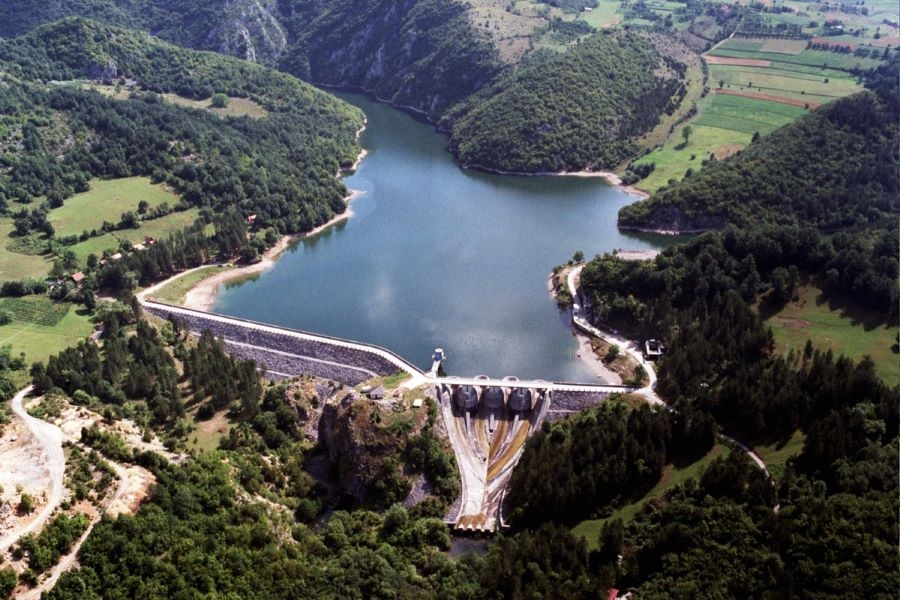Although it was initially planned for the Bistrica hydropower plant to be built by Chinese companies, following the example of other major projects they carry out in Serbia, the current geopolitical events and the war in Ukraine, along with the often unfavorable performance of Chinese companies on various projects in Serbia, lack of transparency, corruption, low environmental standards, as well as delays in work and payment to subcontractors, have led Serbian authorities to change their decision and select Japanese organizations as more reliable partners for Bistrica. The design aspect of the project is expected to be handled by the Japan International Cooperation Agency (JICA), while the Japan Bank for International Cooperation (JBIC) would provide financing. Chinese companies Power China and Avik (AVIC-ENG-China International Engineering Corp) had expressed interest in the Bistrica and Djerdap projects. They had practically received promises from Serbian authorities. However, this plan was abandoned.

Although it was initially planned for the Bistrica hydropower plant to be built by Chinese companies, following the example of other major projects they carry out in Serbia, the current geopolitical events and the war in Ukraine, along with the often unfavorable performance of Chinese companies on various projects in Serbia, lack of transparency, corruption, low environmental standards, as well as delays in work and payment to subcontractors, have led Serbian authorities to change their decision and select Japanese organizations as more reliable partners for Bistrica. The design aspect of the project is expected to be handled by the Japan International Cooperation Agency (JICA), while the Japan Bank for International Cooperation (JBIC) would provide financing. Chinese companies Power China and Avik (AVIC-ENG-China International Engineering Corp) had expressed interest in the Bistrica and Djerdap projects. They had practically received promises from Serbian authorities. However, this plan was abandoned.

Serbia is accelerating toward constructing the reversible hydroelectric power plant "Bistrica.”
Not only was it announced two days ago that the European Commission approved 8.44 million euros in non-repayable assistance for the reconstruction of the hydroelectric power plant and the preparation of a Feasibility Study with an assessment of environmental impact, but the Government has also intensified discussions with potential designers and financiers of the entire project.
As Demostat learns, although it was initially planned for Chinese companies to build the hydropower plant Bistrica, following the model of other large projects they are carrying out in Serbia, current geopolitical events and the often-unfavorable results of Chinese companies on various projects in Serbia have led the Serbian Government to change its decision and select Japanese organizations for Bistrica as more reliable partners.
Minister of Energy Dubravka Djedovic met with a delegation from the Japan International Cooperation Agency (JICA) last month, whose representatives expressed interest in participating in the hydropower plant Bistrica project.
As we learned, JICA would primarily be responsible for the design aspect of the project in the arrangement. At the same time, the other institution - JBIC, or the Japan Bank for International Cooperation, would provide financing.
JICA is a developmental organization that supports countries worldwide on projects that contribute to progress in local communities in areas ranging from urban development, energy, and transportation, to agriculture, food, education, environmental protection, and more.

Source: JICA
In Serbia, JICA is already implementing several significant projects, including modernizing public transportation in Belgrade, desulfurization facilities at the Nikola Tesla Thermal Power Plant, and developing solid waste management capacity.
In this arrangement, the majority of funding is expected to be provided by JBIC, which, among other things, finances projects worldwide that contribute to environmental protection and the reduction of harmful gas emissions.
In that regard, the hydropower plant Bistrica aligns perfectly with its scope of activity.
Nevertheless, the government initially intended to involve the Chinese, not the Japanese, in constructing Bistrica.
According to Demostats findings, this has been a topic of multiple bilateral discussions between representatives of Serbia and China over the past five years.
Serbia essentially promised Chinese companies to work on two significant projects for the Serbian energy system – Bistrica and Djerdap 3 – so the Chinese were convinced that these projects would be given to them.
However, due to the conflict in Ukraine and practical doubts about the reliability of Chinese companies, frequent delays in highway construction projects, and the worsening reputation, following a series of reports about the poor treatment of workers in enterprises like Linglong and Zijin, as well as their subcontractors (also Chinese companies), or inadequate exhaust particle filtration in their mining facilities, Serbian authorities decided that everyone would be better off if a less controversial partner were chosen for this project.

Source: Beta/Milan Obradovic
Projects carried out with China have become characterized by a lack of transparency, corruption, poor treatment of employees, delays in work, and payment issues with subcontractors.
The treatment of workers has emerged as the most considerable reputational risk for the Government of Serbia, as reports about workers having their passports confiscated, sleeping in overcrowded barracks without primary sanitary conditions, or having their freedom of movement restricted appear in the media occasionally. The recent example of Zijins subcontractor demanding workers to salute with clenched fists and stand in rows arranged by height also doesnt help improve this image.
Slow progress in construction work, often influenced by incomplete expropriation, conflicts with local communities, and a high level of pollution in Chinese-operated mines in Serbia, are additional reasons for the Serbian Government to opt for a "more suitable" partner.
This is especially true since Bistrica has officially been designated a priority energy facility in the Energy Infrastructure Development and Energy Efficiency Measures Plan adopted by the Serbian Government.
Minister Djedovic stated that Bistrica will play a crucial role in Serbias efforts to increase energy production from renewable sources.
This has become the central issue of the so-called green agenda in recent years, as the hydropower plant Bistrica would allow the Electric Power Industry of Serbia (EPS) to store excess electricity generated from solar and wind during periods of oversupply, effectively balancing the load on the power grid. This balancing will become increasingly important as renewable capacities in Serbia expand.
"Bistrica is a significant project for us. We thought it would cost 700 million at one point, but now we see it will be 1.2 billion. Minister Djedovic is going to Japan to negotiate financing, and once that starts, the work will proceed. Its of tremendous importance for the entire southern Zlatibor District. Its crucial for energy balancing," Serbian President Aleksandar Vucic recently stated.
Upon completion, the hydropower plant Bistrica will inundate 324 hectares of land along the Uvac River, with a height of up to 90 meters, a maximum width of ten meters, and a length of up to 230 meters.
The reversible hydroelectric plant is equipped with pumps that, using electricity from renewable sources, pump water into the upper reservoir, effectively turning the hydroelectric plant into a massive "battery" for green energy.
The hydropower plant Bistrica will feature four units with a capacity of 157.1 megawatts each, totaling 628 megawatts, making it one of the most essential energy facilities in the country and a key enabler for broader adoption of green technologies in Serbia.
The dam is expected to be constructed in the coming years.
As of the time of publishing this text, representatives of the Ministry of Energy and Mining, as well as JICA, have not responded to Demostats inquiries regarding the progress of negotiations on the hydropower plant Bistrica and the scope and conditions of engagement with Japanese organizations.
In all societies there are issues that are rather being skipped. Certain...
The neoliberal path, started in 2001, has led to especially bad results in Serbi...
For centuries, the region was subsumed within the Ottoman and Hungarian Empires,...
"Serbia has returned to the systemic and anti-systemic position of the political...
In reality, Serbia is closer than ever to NATO. In the course of the last five y...